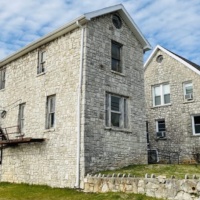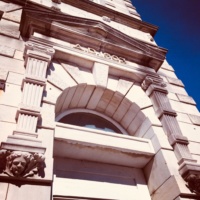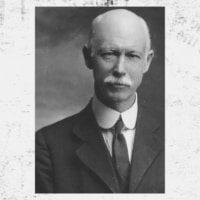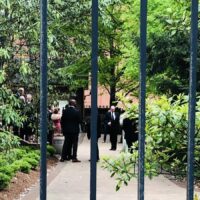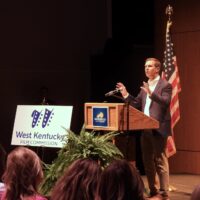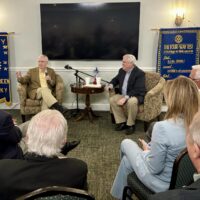Volunteers interested in history and genealogy have confirmed the names of 188 people buried at the Union Benevolent Society Cemetery, an African American burial site on Vine Street about a quarter-mile behind the old Attucks High School.
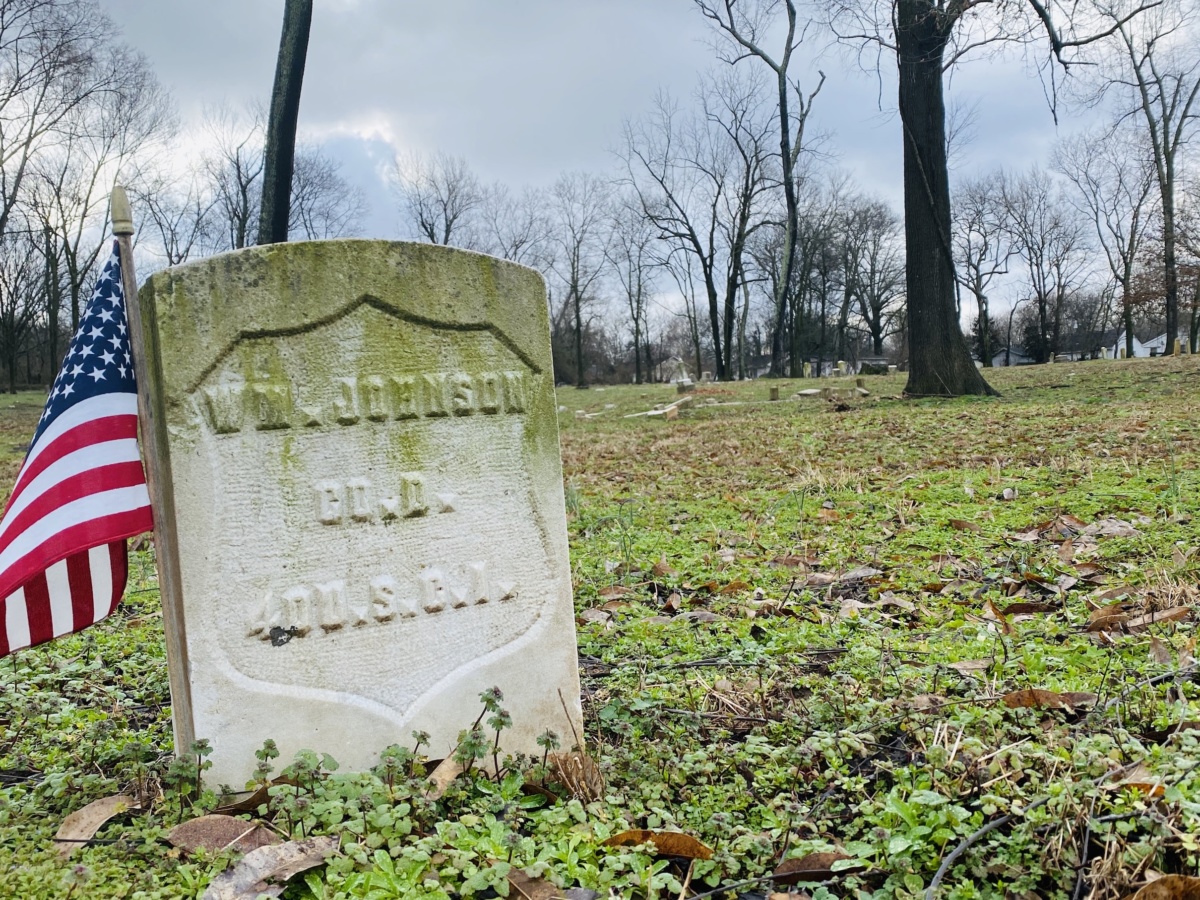
Most of the research has been done since efforts began in 2016 to clean up and reclaim the estimated 5-acre cemetery that was nearly overtaken by a wooded thicket inside the city limits.
Each of the 188 people confirmed at the UBS cemetery is listed on Find-A-Grave.
Joe Craver, a retiree who moved to Hopkinsville in 2014, has done much of the research by walking the cemetery to collect names and dates on headstones. He then uses that information to find biographical details through a number of sources online, including census rolls, military records and newspaper archives.
One of the more interesting discoveries in Craver’s research is the headstone for 1st Sgt. John Collins, who served in the H Company of the 54th Regiment of the Massachusetts Infantry during the Civil War. The Union Army’s all-black unit was the subject of the movie “Glory” starring Morgan Freeman. Collins was a painter and lived in the Chicago area following the Civil War, and probably died in 1898, according to Craver’s research. It is unclear why Collins was buried in Hopkinsville, but the search continues in hopes of answering that question.
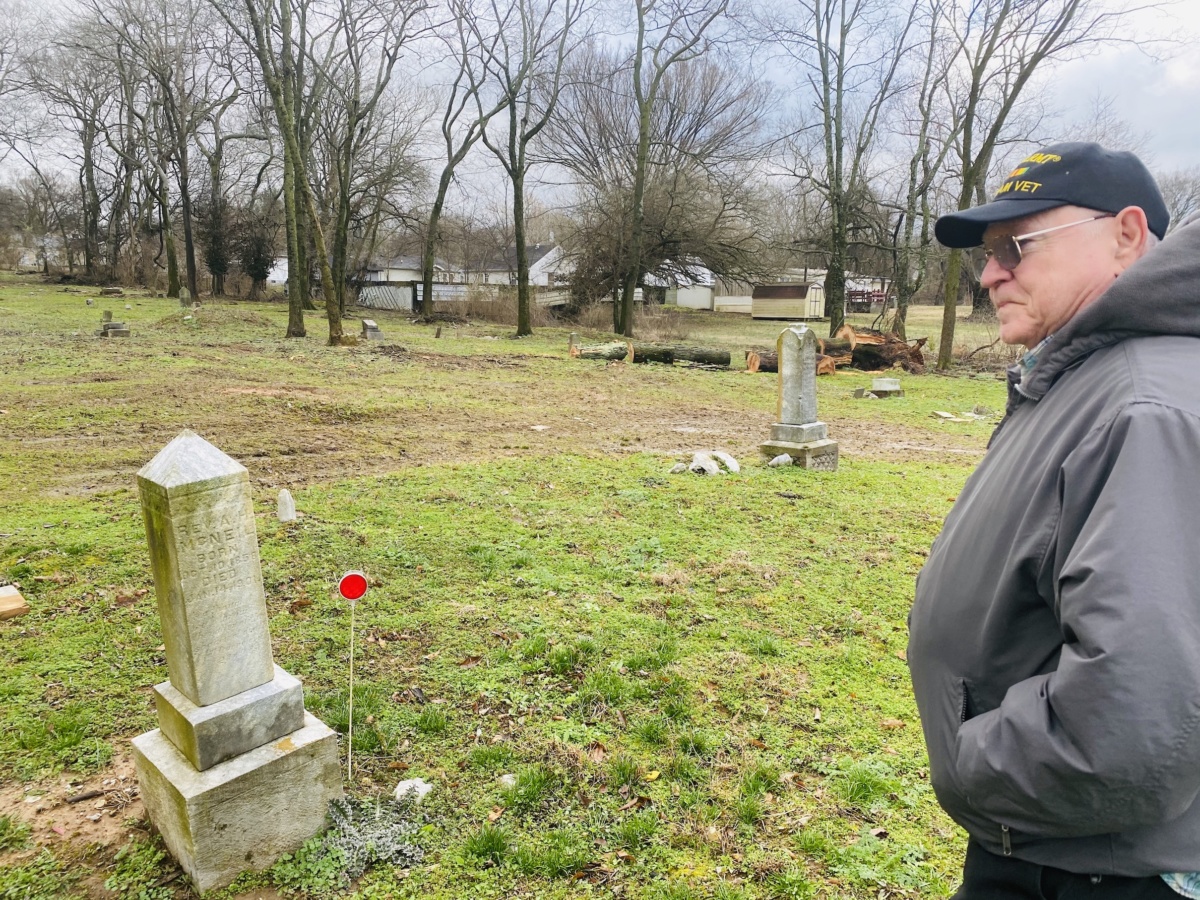
Other notable figures in Hopkinsville’s black history who were buried at UBS include attorney Robert Lander and his wife, Fannie Lander, were involved in a lawsuit that challenged racially segregated seating on passenger trains.
One of the South’s most successful black business owners, former slave Peter Postell, was buried at UBS, but his remains were later moved to the Cave Spring Cemetery on Greenville Road.
Numerous other African Americans buried at UBS, who rarely if ever appeared in newspaper headlines, are equally important to a broader understanding of Hopkinsville’s black history. They included former slaves, laborers, veterans, school teachers, ministers and small business owners.
The UBS, a fraternal organization created following the emancipation of slaves, established the cemetery in Hopkinsville. The earliest burials were recorded in the 1870s, although three headstones for children who died in 1859 suggest that at least part of the cemetery was originally a private burial site for the Bell family of Hopkinsville. The last recorded burials at UBS occurred in the middle of the 20th century.
By the time of the last burials, UBS was no longer active as a fraternal organization in Hopkinsville. Without an owner responsible for maintenance, the cemetery entered into a period of decline that lasted decades.
Two things happened in 2016 that helped save the cemetery from a permanent state of neglect. First, Christian County Jail employee Brad Hewell organized inmate work crews that began removing dead trees and the tangle of vegetation that had made it almost impossible to reach most of the graves. Next, Hopkinsville City Council approved a legal process for the city to establish ownership of the cemetery.
The cemetery was rededicated in 2018, and the city is now responsible for its maintenance.
Many of the headstones originally placed in the cemetery have disintegrated, been crushed by falling trees or have sunk and disappeared under several inches of dirt. Some stones remain standing but the lettering is no longer legible.
Craver is still searching for information online and through historical records to expand the UBS record of burials. Each name he uncovers adds another potential page to Hopkinsville’s understanding of local black history.
(Editor’s Note: Every Thursday in February, the Did You Know feature will be devoted to Black History Month. This is the second installment in the Hoptown Chronicle series.)
Jennifer P. Brown is co-founder, publisher and editor of Hoptown Chronicle. You can reach her at editor@hoptownchronicle.org. Brown was a reporter and editor at the Kentucky New Era, where she worked for 30 years. She is a co-chair of the national advisory board to the Institute for Rural Journalism and Community Issues, governing board past president for the Kentucky Historical Society, and co-founder of the Kentucky Open Government Coalition. She serves on the Hopkinsville History Foundation's board.
